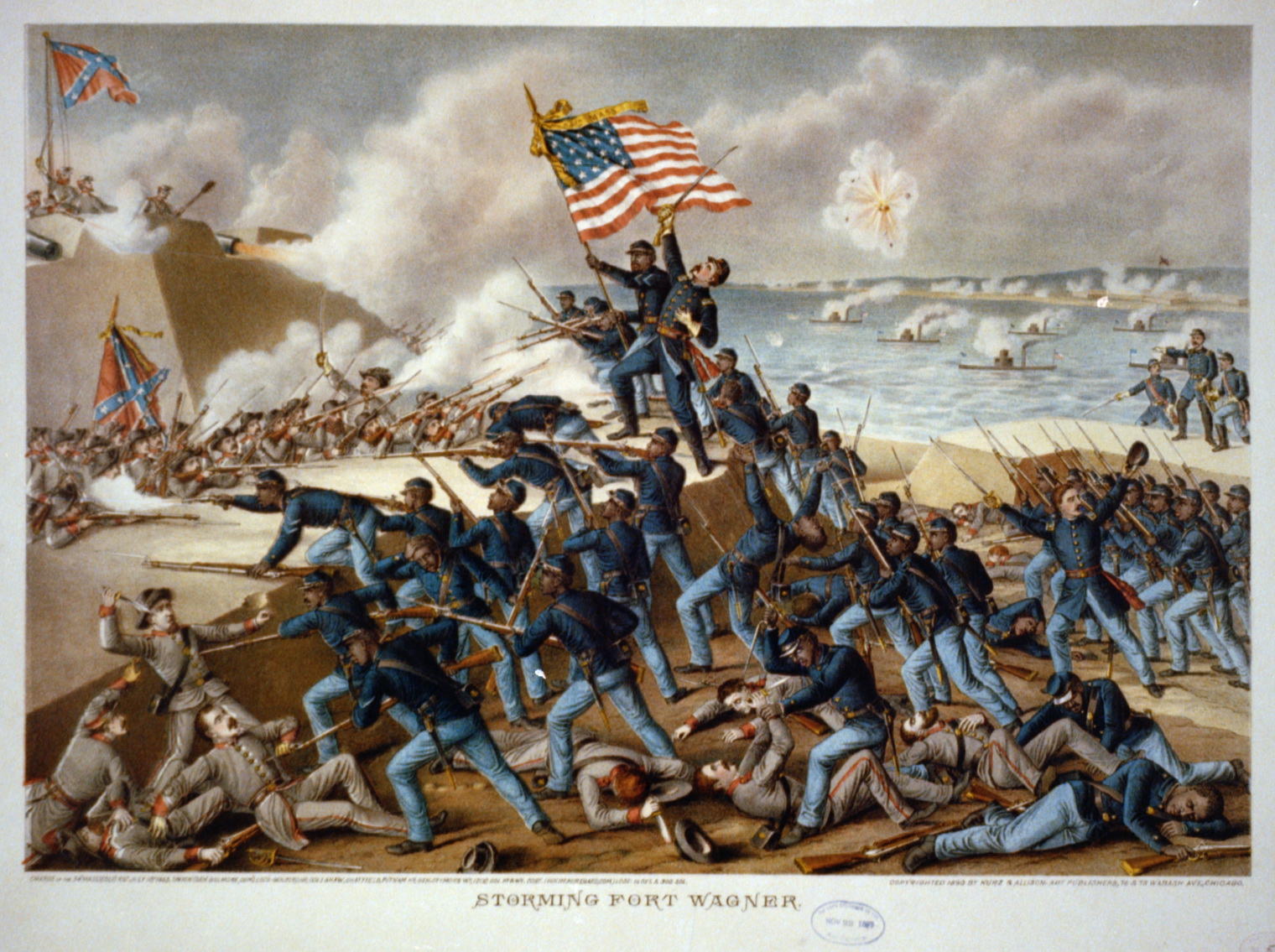Their most famous battle was the Battle of Fort Wagner, in which the 54th Massachusetts Infantry played a crucial part in the capture of the Confederate Fort Wagner. Organized by Robert Gould Shaw, the Infantry was the first wave to storm the fort, which leads to the death of Shaw and 600 of his troops. The courageous actions of the 54th Massachusetts infantry lead to greater support of African American troops and significantly changed America’s view on African American Soldiers.
However, despite the admirable fighting of African Americans, troops were subjected to enslavement or death if they were captured by Confederates, versus the usual punishment of imprisonment that would occur for their white counterparts. Black soldiers would also make $10 a week while white soldiers would make $13 until congress passed a bill that allowed for equal pay amongst both races. These discrepancies in pay and punishment were largely due to the fact that racism still existed in both the Union and Confederacy, and although the actions of Black soldiers in groups like the 54th Massachusetts were undeniably courageous, the were still discounted due to their race.

Sources:
https://www.history.com/this-day-in-history/assault-of-battery-wagner-and-death-of-robert-gould-shaw
https://www.history.com/topics/american-civil-war/black-civil-war-soldiers#section_3
https://www.history.com/topics/american-civil-war/the-54th-massachusetts-infantry
https://en.wikipedia.org/wiki/54th_Massachusetts_Infantry_Regiment
I found it intriguing how despite being equally devoted and capable of fighting, the African American soldiers would still be seen as lesser counterparts to that of the whites. After doing some further research on John A. Andrew, I learned how he joined the Free-Soil movement, in 1848, to fight against slavery. He also defended the abolitionist, John Brown, to the extent of being summoned before an investigating committee of the Senate. His loyalty and support to abolitionism gave way for the eventual guaranteeing of civil rights for African Americans.
ReplyDeletehttps://www.encyclopedia.com/people/history/us-history-biographies/john-albion-andrew
https://www.britannica.com/biography/John-Albion-Andrew